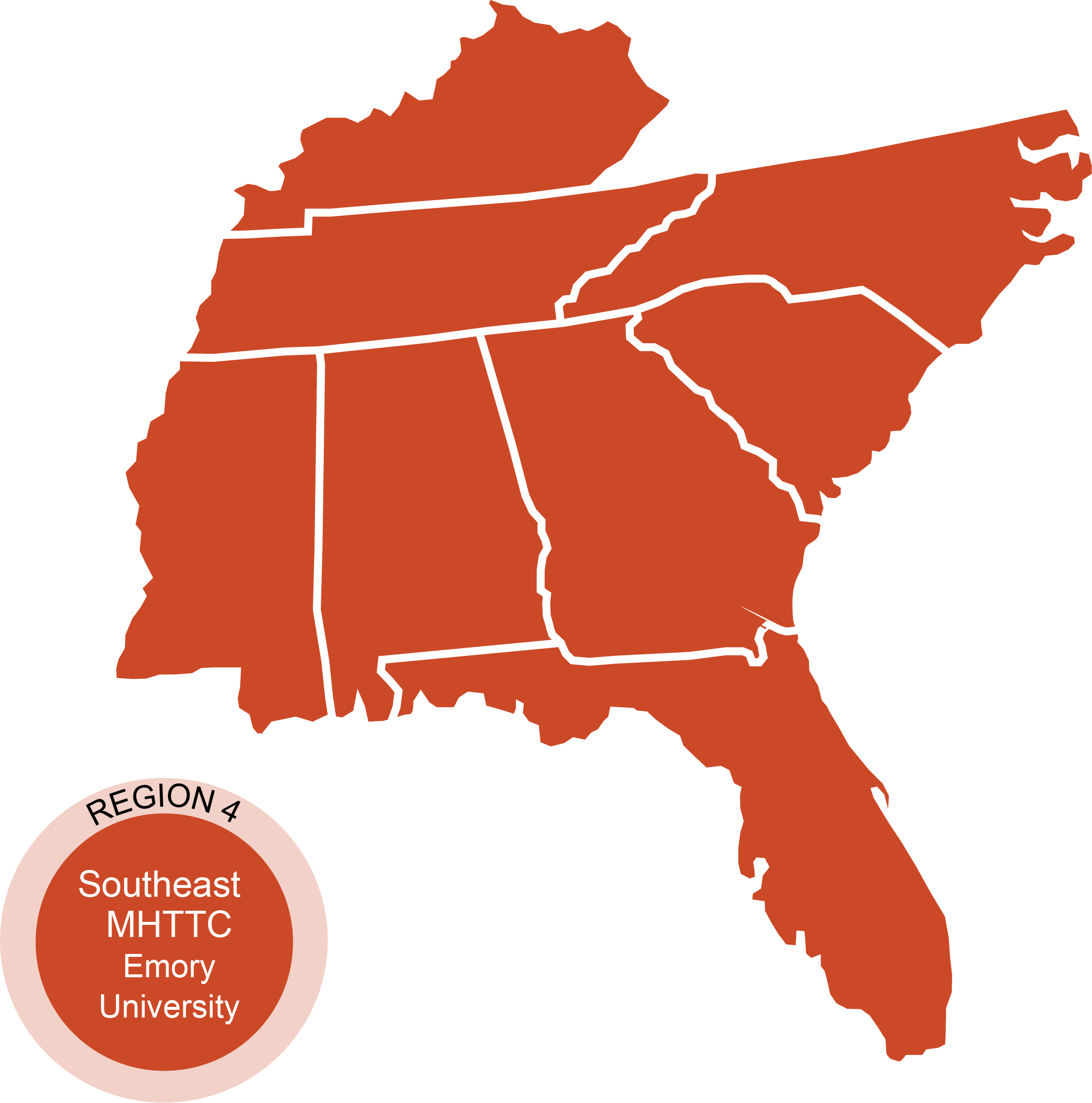Home > MIC Stories: School Mental Health Regional Learning Community

MIC Stories (MHTTCs Implementing Change) feature technical assistance projects that had a significant impact on practice.
A comprehensive needs assessment was conducted across the Southeast region in 2019 to identify top priority areas for which state leaders wanted to receive trainings and technical assistance. School mental health was among the top priority areas identified.
The Southeast MHTTC, in collaboration with the National Center for School Mental Health, implemented the School Mental Health Regional Learning Community to engage the region’s school mental health leaders in advancing comprehensive school-based mental health systems.
The Regional Learning Community supported leaders working to advance school mental health by:
This project began in February 2019 with a Request for Application. Proposals were received from six states that were invited to join the Regional Learning Community: Alabama, Georgia, Kentucky, Mississippi, North Carolina, and South Carolina. Over 50 members, with six to twelve members per state team, participated. Members included state-level leaders in education (e.g., State Superintendents, Project AWARE Coordinators) and mental health (e.g., State Commissioners, Directors of Programs), as well as district-level leaders in education (e.g., Superintendents, Assistant Superintendents) and mental health (e.g., Directors of Clinical Services, Clinicians).

The Regional Learning Community kicked off in February 2019 and since then, the Southeast MHTTC has provided:
During the first virtual learning session, state teams were asked to develop SMART goals (i.e., goals that are specific, measurable, achievable, relevant, and timely) that they wanted achieve. Other learning session topics included:
The specific topics, content, and resources provided during the virtual learning sessions were selected based on teams’ goals. In addition, each team also had the opportunity to receive a tailored in-person training to facilitate progress towards their SMART goals.
The Regional Learning Community was initiated to provide state leaders with multiple opportunities to receive support to advance school mental health initiatives. Having multiple states involved brought diversity in their goals and approaches.
Once teams developed their own SMART goals, the Southeast MHTTC worked to achieve an optimal balance in delivering didactic content relevant to most (or all) teams, while also providing opportunities for individualized support through coaching calls and in-person trainings. After each virtual learning session, members provided feedback that was utilized, along with input from coaching calls, to tailor each virtual learning session to maximize learning opportunities relevant to the teams’ SMART goals.
The Southeast MHTTC employed a mixed methods design using both quantitative and qualitative data to evaluate this project. Quantitative data included polling questions at the end of each virtual learning session, satisfaction surveys, and other survey items. Qualitative data were gathered from polling questions at the end of each virtual learning session, open-ended questions in the event satisfaction surveys, and key informant interviews. These methods were used both to assess implementation of Regional Learning Community activities and to guide subsequent components of the Regional Learning Community.
Participants found the virtual learning sessions to be highly relevant to their improvement processes. They described the value of learning about strategies and success stories from other states in the region related to their school mental health efforts. Furthermore, interviews with key informants reflect very positive experiences overall with the Regional Learning Community. State representatives from mental health and education are working well together to further refine and implement their school mental health goals.
The Southeast MHTTC is:
While state team members have many responsibilities outside of the Regional Learning Community, they are committed to the mission of the project and to continuing their collaborative work with one another. They have shown great potential to enhance school mental health among young children and adolescents. This is also challenging work, and in several states, more time for implementation and cross-sector collaboration is needed to sustain efforts and achieve long-term goals.

The Southeast MHTTC, funded by the Substance Abuse and Mental Health Services Administration, is located in Atlanta, GA and is housed in the Rollins School of Public Health at Emory University. The Southeast MHTTC provides training and technical assistance, and supports, develops and disseminates resources to the behavioral health and primary care workforce in the U.S. Department of Health and Human Services Region 4, which includes the following states: Alabama, Florida, Georgia, Kentucky, Mississippi, North Carolina, South Carolina, and Tennessee. The Southeast MHTTC's mission is to promote the adoption and access to evidence-based mental health services throughout the region.